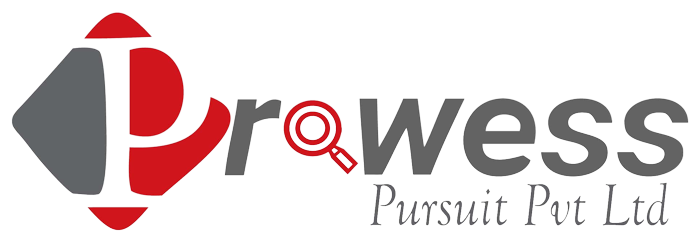
Spouse Visa Canada – What Is Meaning, Requirements, Processing Time, New Rues, Fees, and More
Dreaming of building a life together in Canada with your spouse? The Canadian Spouse Visa program, also known as Spousal Sponsorship, paves the way for this dream to become reality. This program allows Canadian citizens and permanent residents to sponsor their spouses or common-law partners for permanent residency in Canada.
This comprehensive guide dives deep into everything you need to know about the Spouse Visa. We’ll explore eligibility requirements, navigate the application process step-by-step, and unpack the latest updates on processing times, fees, and any new regulations. Whether you’re just starting your research or are ready to submit your application, this article equips you with the valuable insights needed for a successful spousal sponsorship journey in Canada.
What Is Canada Spouse Visa?
The Canada Spouse Visa, also known as spousal sponsorship, is a pathway for Canadian citizens or permanent residents to sponsor their spouse or common-law partner for permanent residency in Canada. This visa allows your spouse to immigrate to Canada and live, work, and study freely alongside you. It’s a popular option for couples seeking to reunite and build a life together in Canada.
Who is Considered a Spouse or Dependent?
Understanding who qualifies as a spouse or dependent is crucial for a Canadian Spouse Visa. Here’s a breakdown:
- Spouse: This refers to someone you’re legally married to, recognized by Canadian law. This applies to both opposite-sex and same-sex marriages.
- Common-Law Partner: If you’re not married, you can qualify if you’ve cohabited in a conjugal relationship with your partner for at least one year. This means a committed, interdependent relationship with a shared home and life together.
Remember: For common-law partners, meeting the one-year cohabitation requirement is essential. Documentation to prove this cohabitation will be required during the application process.
Who Can be a Sponsor?
Let’s break it down:
- Citizenship Status: You must be a Canadian citizen, a permanent resident of Canada, or a person registered as an Indian under the Canadian Indian Act.
- Age: You must be 18 years of age or older.
- Relationship: You must be legally married to the person you’re sponsoring, or in a common-law or conjugal partnership with them.
- Residence: Ideally, you should be living in Canada. However, Canadian citizens living abroad may be eligible to sponsor a spouse as long as they intend to return to Canada once their spouse becomes a permanent resident. Permanent residents living outside Canada cannot sponsor a spouse.
- Financial Independence: You must be able to financially support your spouse for a period of three years after they arrive in Canada. This demonstrates your ability to provide for their basic needs without relying on government assistance.
Additional Considerations:
- If you’ve been a sponsor before and the relationship failed within the sponsorship undertaking period, you may face additional eligibility requirements.
- There are exceptions to the residence requirement for Canadian citizens living abroad. Consult with an immigration professional for your specific situation.
Types of Canada Spouse Visa
There isn’t technically a “Canada Spouse Visa” itself, but rather a spousal sponsorship program offering two main pathways to permanent residency:
- Outland Sponsorship: This applies if your spouse lives outside Canada. You, the sponsoring spouse, must be a Canadian citizen or permanent resident. The application is processed in Canada and then transferred to a visa office abroad for your spouse’s visa issuance.
- Inland Sponsorship: This option is available if your spouse is already in Canada with valid temporary status (like a visitor visa or work permit). You can submit a sponsorship application together, allowing your spouse to stay and work in Canada with an open spousal work permit while the application is processed.
Spouse Visa Canada Requirements: Building a Strong Application
Obtaining a spouse visa for Canada involves demonstrating a genuine and lasting relationship with your Canadian sponsor. Here’s a breakdown of key requirements:
- Valid Relationship: Prove your marriage through a legal certificate, or establish a common-law/conjugal partnership of at least one year with shared history and responsibilities.
- Sponsorship Commitment: Your Canadian spouse must be willing to financially support you for a set period, demonstrating their ability to meet the minimum income requirements.
- Age Eligibility: Both you and your sponsor must be 18 years old or older.
- Admissibility to Canada: You must pass medical examinations and criminal background checks to ensure you pose no health or security risks.
- Language Skills: Depending on your intended province, proficiency in English or French might be required.
Meeting these requirements is crucial for a successful application. Remember, providing comprehensive documentation solidifies the authenticity of your relationship with your Canadian partner.
Documents Required for Spouse Visa Canada: A Comprehensive Guide
Securing a spouse visa to join your partner in Canada marks a significant step in your life together. After confirming your eligibility, gathering the necessary documentation becomes crucial. This guide delves deeper into the documents typically required by Immigration, Refugees and Citizenship Canada (IRCC) for a successful spouse visa application.
Essential Documents:
- Application Forms: The core of your application lies in the completed forms. These include the Application to Sponsor (IMM 5525), Sponsorship Agreement (IMM 1344), and Undertaking (IMM 5569). Ensure you download the latest versions from the IRCC website and fill them out accurately.
- Proof of Relationship: Convincing evidence is key to demonstrating a genuine and ongoing relationship with your spouse. This can include a certified copy of your marriage certificate (or common-law partnership documentation), a comprehensive collection of photographs depicting your life together from various stages, joint bank account statements, proof of joint property ownership, and any other documentation showcasing a bona fide relationship.
- Identity and Status Documents: Both you and your spouse will need to provide valid passports or travel documents, original birth certificates, and any other official identification documents issued by your respective governments.
- Proof of Legal Status in Canada (if applicable): If your spouse is already residing in Canada, they must present documents confirming their legal status, such as a valid visa or work permit.
- Police Certificates: To ensure public safety, both you and your spouse will need to obtain police certificates from every country or territory where you’ve lived for six months or more since turning 18. Contact the relevant authorities in those countries for specific instructions on acquiring these certificates.
- Medical Examination: Your spouse’s health is a consideration for Canadian immigration. They will be required to undergo a medical examination by a designated panel physician to meet Canada’s health requirements.
- Financial Documents: As the sponsoring partner, you need to demonstrate your financial capacity to support your spouse. This can be achieved by submitting documents like employment letters, recent pay stubs, detailed bank statements, and your latest tax returns.
- Sponsorship Documents: To solidify your role as the sponsor, provide documentation proving your eligibility and financial stability. Similar to the financial documents mentioned above, employment letters, pay stubs, bank statements, and tax returns will be essential.
Additional Considerations:
While the documents listed above serve as a comprehensive guide, additional documentation may be required depending on your specific circumstances. This could include:
- Divorce or separation documents: If either of you has been previously married, proof of the legal dissolution of those marriages is necessary.
- Custody agreements: If you have children from previous relationships, providing custody agreements demonstrates your ability to manage your responsibilities.
- Proof of previous sponsorships: If you have sponsored someone else in the past, documentation of that sponsorship may be requested.
How to Apply for a Canada Spouse Visa from India
So, you’ve confirmed your eligibility and gathered the necessary documents for your Canada Spouse Visa application from India. Now comes the process of submitting it. Here’s a detailed breakdown to guide you through each step:
1. Eligibility Double-Check:
Before diving in, ensure you meet the sponsor criteria. You must be a Canadian citizen or permanent resident, at least 18 years old, and financially capable of supporting your spouse.
2. Document Assembly:
This is crucial. Compile all the required documents as per the IRCC (Immigration, Refugees and Citizenship Canada) listing. These typically include:
- Identification documents: Passports, birth certificates for both spouses.
- Proof of relationship: Marriage certificate, photos together throughout your relationship, communication records (emails, messages), proof of joint finances (bank statements, property ownership documents).
- Financial documents: Proof of your income (payslips, tax returns) to demonstrate you can support your spouse.
- Police certificates: Police clearances from both of you from countries you’ve resided in for six months or more in the past ten years.
- Medical examination reports: Immigration medical exams completed by a designated physician for both spouses.
3. Application Forms:
Complete the online application forms available on the IRCC website. These include:
- Application to Sponsor (IMM 5525): This form details your information and your commitment to sponsor your spouse.
- Sponsorship Agreement and Undertaking (IMM 1344): This agreement outlines your financial obligations towards your spouse.
4. Application Fees:
Pay the necessary fees online or through designated methods. These include processing fees for the sponsorship application, biometrics (fingerprints and photograph), and medical examinations.
5. Application Submission:
Submit the completed application forms, supporting documents, and payment receipts to the IRCC office in New Delhi or Chandigarh. You can either submit online or by mail. Opting for online submission is generally faster and more convenient.
6. Processing Time:
Be prepared to wait. The processing time for Canada Spouse Visas from India can take anywhere between 8 to 10 months, depending on the workload at IRCC.
7. Interview (Optional):
In some cases, IRCC may request an interview for you and your spouse to assess the genuineness of your relationship. Be prepared to answer questions about your relationship history, future plans, and how you met.
8. Decision and Visa Issuance:
Once processed, IRCC will inform you of the decision. Upon approval, your spouse will receive a visa to enter Canada and apply for permanent residency.
Additional Tips:
- Start early – The application process can be lengthy. Begin gathering documents well in advance.
- Seek professional guidance – Immigration consultants can help navigate the complexities and ensure a smooth application.
- Maintain open communication – Keep IRCC informed of any changes in your situation or contact details.
By following these steps and maintaining patience, you can increase your chances of a successful Canada Spouse Visa application from India. Remember, accurate and complete documentation is key. Don’t hesitate to seek professional help if needed, and congratulations on starting your journey together in Canada!
Canada Spouse Visa Fees in Indian Rupees
Applying for a Spouse Visa in Canada involves fees associated with sponsorship and the application itself. Here’s a breakdown of the estimated costs in Indian Rupees (INR) based on an exchange rate of ₹60 per CAD (Please note: exchange rates can fluctuate):
| Sponsorship Type | Fee (CAD) | Fee (INR) |
| Sponsor your spouse or partner | $1,050 | ₹64953 (Approx.) |
| (Sponsorship fee $75, principal applicant processing fee $475, right of permanent residence fee $500) | ||
| Sponsor your spouse or partner without the right of permanent residence fee | $550 | ₹34023 (Approx.) |
| (Sponsorship fee $75, principal applicant processing fee $475) | ||
| Sponsor a dependent child | $150 per child | 9280 (Approx.) |
| (Sponsorship fee $75, processing fee $75) | ||
| Include any dependent child | $150 per child | 9280 (Approx.) |
| (Include any dependent child on an application with your spouse or partner, processing fee of $150) |
Canada Spouse Visa Processing Time
Processing times for Spouse Visas can vary depending on several factors, including the workload at the visa office processing your application and the complexity of your case. Here’s a general guideline:
| Region | Approximate Processing Time (Months) |
| India | 13 |
| China | 10 |
| United States | 8 |
| United Kingdom | 7 |
| Other Countries | 9 |
Getting Help with Your Spouse Visa Application
The Spouse Visa application process can be complex. If you need help, consider consulting with a licensed immigration consultant who can guide you through the process and ensure your application is complete.
By understanding the requirements, processing times, and fees associated with a Spouse Visa, you can feel more confident about sponsoring your spouse for permanent residence in Canada. Remember, this guide provides a general overview, and it’s always best to refer to the official IRCC website for the most up-to-date information.
Frequently Asked Questions: Spouse Visa Canada
How long does it take to get a spousal visa in Canada?
Processing times can vary depending on individual circumstances, but generally range between 12 to 24 months.
Who is eligible for a spousal visa in Canada?
1. You, the sponsoring spouse, must be a Canadian citizen or permanent resident (PR).
2. You and your spouse must be in a legally recognized marriage.
3. You must be able to financially support your spouse for three years after they arrive in Canada.
What are the new rules for Canada spouse visa?
As of now (March 2024), there haven’t been any major rule changes announced. It’s always wise to check the official Canadian government website (https://www.canada.ca/en/immigration-refugees-citizenship/services/immigrate-canada/family-sponsorship.html) for the latest updates.
What is the success rate of spouse visa in Canada?
Success rates can fluctuate, but generally hover around 70-80%. A well-prepared application with strong supporting evidence significantly improves your chances.
Can I sponsor my wife to Canada if I have PR?
Yes, if you are a permanent resident of Canada, you can sponsor your spouse for permanent residency.
What is the minimum income to sponsor a spouse in Canada?
There is no minimum income requirement unless you’re sponsoring a spouse with a dependent child who has their own children. In that case, a minimum income threshold applies (check the IRCC website for current amounts).
How can I bring my wife to Canada after marriage?
The process involves applying for spousal sponsorship through Immigration, Refugees and Citizenship Canada (IRCC). This is a two-step process where you first apply to become a sponsor and then your spouse applies for permanent residency.
What are the benefits of a spouse visa in Canada?
A spouse visa allows your spouse to live, work, and study in Canada permanently. They can also access healthcare and social benefits.
What is the best way to bring your spouse to Canada?
The best way is to follow the official IRCC spousal sponsorship process. Consider consulting an immigration lawyer for personalized guidance.
How many hours can my spouse work in Canada?
With a spousal visa, your spouse can work full-time (40 hours/week) or part-time without restrictions.
Is IELTS required for a spouse visa in Canada?
While not mandatory, having an English language test (like IELTS) can strengthen your application and processing times.




